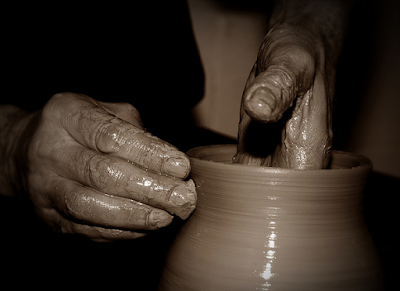“That night Jacob got up and took his two wives, his two female servants and his eleven sons and crossed the ford of the Jabbok. After he had sent them across the stream, he sent over all his possessions. So, Jacob was left alone, and a man wrestled with him till daybreak. When the man saw that he could not overpower him, he touched the socket of Jacob’s hip so that his hip was wrenched as he wrestled with the man. Then the man said, “Let me go, for it is daybreak.” But Jacob replied, “I will not let you go unless you bless me.” The man asked him, “What is your name?” “Jacob,” he answered. Then the man said, “Your name will no longer be Jacob, but Israel, because you have struggled with God and with humans and have overcome.” Jacob said, “Please tell me your name.” But he replied, “Why do you ask my name?” Then he blessed him there.” (Gen 32:22-29)
Why do we expend so much energy in wrestling with God?
Several years ago, I felt it put on my heart to look at the story of Jacob wrestling with God. Through this God showed me that I had been wrestling with Him more than walking with Him.
Fast forward a few years and I am reviewing some old notes and I come across my notes about Jacob wrestling with God. In looking through these notes I am struck with the realization that I am still wrestling with God. In some areas the struggle seems to be the same, in other areas it is different. None the less, I still wrestle.
Now I have to ask, am I that thick headed and stubborn? (Yes, I can be.) Why do I keep trying to make it more difficult on myself? Why do I keep resisting? Why do I keep trying to do things or figure them out my way, in my own time, with my strength, etc.?
How does that definition of insanity go? Doing the same thing over and over again, but expecting different results.
Some say Jacob’s
wrestling match was metaphorical, others lean toward a more literal wrestling
match. Either way, there is definitely a
spiritual dynamic at play. With the time
I have spent reading and studying the bible and the way God does things, I
believe that, in a way only God could orchestrate, what may have started as a
metaphorical journey for Jacob while he was alone, became so much more. A literal, physical wrestling match that, as
the night progressed, became a struggle, which led to a physical dislocation
and a spiritual break through. In the end Jacob was no longer wrestling but
clinging to God, seeking a blessing.
We may think of our wrestling with God more in a metaphorical sense but there is always much more going on than we realize. God has blessing and victory in life for us but He will not just give them to us. Lasting growth requires struggle and sacrifice. When things come to easily, we do not really learn anything or appreciate it. But the struggle helps mold us into a better person. It makes us wiser, stronger, more resilient. We gain more through the wrestling with the right intent than without it.
How
long do we wrestle with God before we start to yield the different areas of our
life to Him? God will meet us in our
fear, uncertainty, anguish, and also in our stubbornness and rebellion. The challenge is, when God comes it is not necessarily
in the way we expect or want (this is our attempt to try and control the
situation on our part, not trusting God has our best interest at heart). God, in His infinite love for us, will allow
us to struggle for as long as it takes for us to realize how much better we
will be if we stop wrestling and submit to what He has for us.
Oftentimes, God will use the hurt in our lives to bring us back to Him. To put us in the right frame of mind to seek Him and to cling to Him in our weakness so His love shines through. God wants us to hunger for Him and His kingdom. He wants us to seek Him with all our strength. To turn over all our pain and troubles and to trust Him and all that He has for us. What might God need to dislocate in your life for you to come to the end of yourself and start clinging to Him?
We need to start clinging to God, to humble ourselves. We cannot get anywhere with God by struggling and resisting Him. To really grow, we need to do more yielding and just hanging on. The wrestling is a bad thing only if it is based in resistance to God and our wanting total control over our lives. When the wrestling leads to growth and submission to Him it can become a channel for God’s blessing in our lives.
So,
stop the insanity!
Stop wrestling
with God out of stubbornness and rebellion. Seek out the areas in your life
where you are still wrestling with God and open your heart to all God has for
you. Remember, this is not a ‘do I go to
church every week and read my bible every day’ kind of thing. This is the interactions we have with God
Himself. Opening ourselves to Him and all He has for us. Our relationship with Him and our pursuit of
Him. Are we pursuing Him? We know He pursues us, that is one of the
major themes of scripture.

.jpeg)





